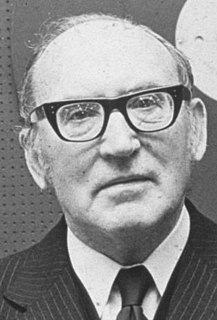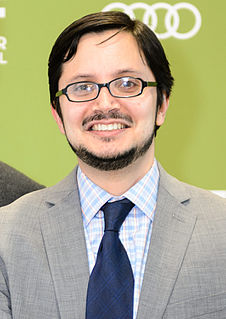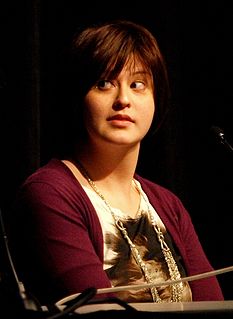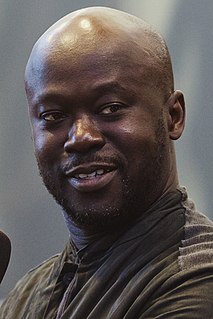A Quote by Frederik Pohl
Stories where the author has known very little, but run a computer program that tells him how to construct a planet, and looked up specific things about rocketry and so on, really suck.
Related Quotes
Professor Wilkes is best known as the builder and designer of the EDSAC, the first computer with an internally stored program. Built in 1949, the EDSAC used a mercury delay line memory. He is also known as the author, with Wheeler and Gill, of a volume on "Preparation of Programs for Electronic Digital Computers" in 1951, in which program libraries were effectively introduced.
One of the things I like about the computer that I use is that I can write a program on it or I can download a program on to it and run it. That's kind of important to me, and that's also kind of important to the whole future of the internet... obviously a closed platform is a serious brake on innovation.
The Internet obviously changes things; we've seen that in the music industry above all else. As an author, I'm now having to deal with the fact that it's happening in the publishing industry as well. And publishing is going through a very difficult time. Some view it as positive, some negative, but nobody really knows how to deal with it. If you're an author it looks very challenging because your work can be pirated so easily and there's very little you can do about it.
Zhuangzi is especially insightful about the human pretension to know. The Zhuangzi tells a story about a frog who lives in caved-in well. Because he is the lord of this little world of his, king of the pollywogs, he is very proud of himself. But he doesn't know how small his world is until a turtle comes and tells him about the vastness of the sea. We human beings are like the frog, not realizing how little our worlds are.
Often, as an interviewer, particularly when you're talking to highly visible people, celebrities, and it's known that negative things have happened, they don't want to talk about it, or you have to really work up to it. You have to carefully construct the conversation so that they feel open enough to discuss some of those things with you.
When I play games, I'll make up little stories for just anything. It's almost the game of making up background stories for people you see on the street. You know what I mean? I wasn't exactly the popular kid in school growing up, so I found myself really observing people, and watching how they interact, and how they react to things.
When I read the script [of Good Kill], it read like a science fiction film. And Andrew [writer/director Andrew Niccol] is known for sci-fi. But when I spoke to him, he said this picture was 100% factual, which blew my mind. I realized then how little I knew about the drone program. And I felt that, if I knew so little about it, there must be others who should be educated about what's going on.
There is a certain embarrassment about being a storyteller in these times when stories are considered not quite as satisfying as statements and statements not quite as satisfying as statistics; but in the long run, a people is known, not by its statements or its statistics, but by the stories it tells.
Science is a way to teach how something gets to be known, what is not known, to what extent things are known (for nothing is known absolutely), how to handle doubt and uncertainty, what the rules of evidence are, how to think about things so that judgments can be made, how to distinguish truth from fraud, and from show.
In a way, I feel I have enough tools and knowledge now that when I build it has a very specific agency that's very conscious. It's no longer speculative; it's really constructed. I'm very interested in how that consciousness, about how I am producing, is working within different conditions. It's like growing up.





































